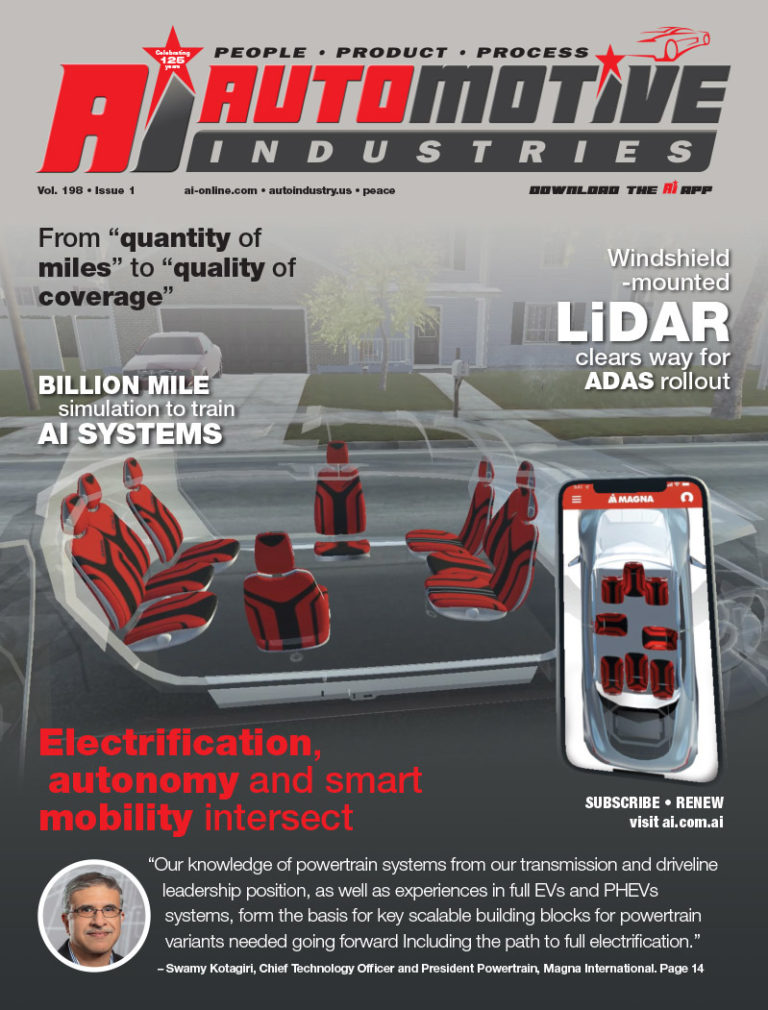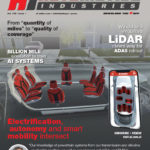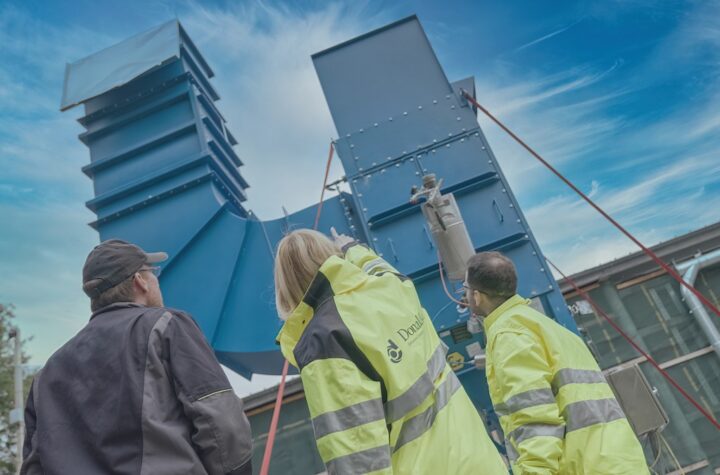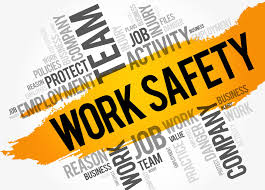
Tunisia is one of the most attractive destinations for investments with its geographical proximity to Europe, Africa and the Middle East. Tunisia is a privileged partner to the European Union – from January 2008, Tunisia was the first south Mediterranean country to join the Free Trade Area of the EU. This gives Tunisia free access to the EU markets. Reflecting the growing importance of Tunisia as an attractive investment destination is the fact that in the first eleven months of 2009, investments into the country were up by 2.3 per cent at nearly 2 billion Tunisian Dinars (TND) compared to 1.8 billion TND the previous year.
The investments were mainly made in high-tech sectors such as the electronics, electrical and mechanical industries. Tunisia has also fared well in the Davos World Economic Forum’s latest report on global competitiveness for 2009-2010 which ranked Tunisia 40 out of a total of 133 developed and emerging countries in terms of global competitiveness.
The automotive industry has also taken advantage of Tunisia’s salubrious investment climate. For example automotive components manufacturer Johnson Controls, has been in Tunisia for a while now. The company has a manufacturing base in Bir el Bey that produces interior electronic business units (displays) and body business units (immobilizers). The company has a partnership with a Tunisian firm the MBAZI Group. Johnson Controls expects its Tunisian operations to generate revenues of over 100 million Euros in 2010. The Tunisian plant of Johnson Controls makes products for companies such as Renault, Citroen, General Motors, Opel and Nissan. Johnsons Controls employs around 600 people in Tunisia.
Companies like tire major Pirelli, have joined hands with local companies in Tunisia. Pirelli has a 15 per cent stake in the Tunisian Tire Industries Company or STIP. Pirelli has access to not only Tunisian tire market thanks to this partnership but also to the North and East African markets.
Gruner AG, which manufactures relays, solenoids and contactors for the automotive, energy, construction and semiconductor industries, has been in Tunisia since the 70’s. Nearly 70 per cent of the parts produced by Gruner are made in Tunisia. Gruner chose Tunisia over Morocco, Portugal and Turkey because of its stable political and economic climate as well as its geographical location. Tunisia offered Gruner easy access to Germany via Genoa and Marseille over land and sea. Plus Tunisian labor is cost effective and highly trained. Gruner has 300 employees in Tunisia and its operations there account for Euro 20 million in turnover annually.
Tunisians enjoy a high standard of education which makes it easy for foreign companies in the country to hire skilled workers. Every year 2,000 highly-skilled technicians come out of Tunisian universities which churn out 370,000 graduates annually.
In 1995, the Tunisian Ministry of Development and International Cooperation set up the Foreign Investment Promotion Agency or FIPA-Tunisia to facilitate foreign direct investment into the country. FIPA-Tunisia provides foreign investors all the support they require. Plus the agency has offices abroad that offer information, advice and assistance to investors.
Automotive Industries spoke to Mongia Khemiri – General Director, The Foreign Investment Promotion Agency of Tunisia (FIPA-Tunisia).
AI: What makes Tunisia score over other emerging countries as an automotive manufacturing hub?
MK: Tunisia has been working for over 20 years on the development of an automotive equipment industry based on an international subcontracting approach, which aims at attracting world equipment manufacturers. Targeted strategic approaches had been set, allowing the sector to emerge as one of the most dynamic industries, witnessing development at all levels, including innovation, diversity and performance.
Today Tunisia is a manufacturing hub for dozens of foreign owned first and second-tier automotive component manufacturers supplying parts to most of the major American, French, German, Japanese and Swedish vehicle manufacturers. The diversity of such supplied parts is quite vast – car cables, air-bags, technical plastic parts using sophisticated processes, interior electronic business units, shock-absorbers, seat covers, tooled mechanical parts and so on. Major European market suppliers that operate in Tunisia include Valéo, Johnson Controls, Lear Corporation, Kromberg&Schubert, Pirelli, Mets, Leoni, Draxelmaier, Plastivaloire, Imtec, etc.
Tunisia manufactures 2% of the world’s automotive wire and cables and is ranked among the top 10 providers of car cables to the European market. Top players in the field are already expanding activities such as Yazaki , Leoni, Lear Corporation, Sumitomo, Yura Corp and Draxlmaier. Some of them have also picked Tunisia as a platform for their research efforts, setting up R&D and engineering centres that employ Tunisian competencies. An overall opinion of foreign investors operating in the sector attributes Tunisia’s success to three factors – stability, proximity and quality.
AI: What is FIPA-Tunisia doing in order to hard-sell Tunisia’s unique competitive advantages to Tier I and II component suppliers?
MK: Over a period of more than 15 years, FIPA Tunisia, along with various government ministries and institutions, has been developing new strategies to further attract and better serve the needs of foreign investors in the automotive industry. The industry’s rapid changes and ever-intensifying competition due basically to globalization requires from any institution engaged in such activities more aggressiveness and more efforts to follow the global trends to get insights into how to adapt promotional strategies to the new environment’s demands.
Targeted initiatives include sector-oriented selling points, increase of door to door contacts, opening new FIPA offices abroad (in addition to the already operational ones in Brussels, Cologne, London, Madrid, Milan and Paris), investing in staff training (joint programs with European and Asian institutions to help master basic promotional techniques). These are some of the basic tools used by FIPA-Tunisia towards more efficiency. FIPA has been certified ISO9001 since 2003.
AI: What makes Tunisia popular as a base for manufacturing production?
MK: Tunisia is blessed with sound economic and social stability reflected in a number of indicators. Tunisia is, indeed the 1st country from the south shore of the Mediterranean which attracts the largest number of European companies as reported by the survey ‘National Industrial Strategy by 2016’ prepared by Ernest & Young. The latest report on global competitiveness 2009-2010 released by the world Economic Forum in Davos, ranked Tunisia 40th out of 133 developed and emerging countries in terms of global competitiveness.
Many top players in different industries have set up bases in Tunisia and this sustains the idea that the country is becoming a hub for manufacturing. These include investments by companies like Airbus, Zodiac, Hutchinson, Eurocast, STMicroelectronics, Altran, Siemens, Johnson Controls, Lear Corp, Benetton and so on. By maintaining its low-cost, high quality alternative together with an effective convergence of know how and just-in-time production, Tunisia is, indeed, securing its position as an ideal place to develop businesses that produce higher value export products.
In addition, Tunisia is well known for its pleasant living conditions, a significant selling point when selling the economy as a suitable place for investments in the Mediterranean region. The 2010 International Living Magazine ranks Tunisia, for the second consecutive year, on top of the Arab countries in matters of quality of life.
AI: What are the strategic location advantages Tunisia enjoys in terms of transportation, logistics and distribution?
MK: Tunisia is at the heart of the Euro-Mediterranean logistic chain, near the main cities of Europe and on the doorstep of a market of 500 million consumers. Less than an hour flight from Europe, Tunisia has eight international airports throughout the county catering some 166 foreign airlines that provide more than 1300 flights a week to and from Europe.
Seven commercial ports and a modern maritime fleet made up of 23 shipping lines meeting the standards of security and rapidity allowing for regular service to the main European ports (4 to 5 days lead times).
Tunisia, indeed, intends to develop integrated logistics thanks to its strategic position, which confers it an important economic comparative advantage.
A logistics platform network is planned in the near future and will extend over the whole country, near the big urban, economic and industrial centers and at the junction of transport network great axes as well as around the new deep-water seaport to be built soon.
Companies operating in Tunisia have already incorporated the best practices in their development program in the logistics field and adopted the supply chain management concept, the latter being managed by a skilful logistics team that listens to its customers and provides them with the best service. Some companies have also implemented an efficient supply infrastructure by setting up components’ collecting platforms within their suppliers’ premises.
The World Bank’s 2010 report titled ‘Connecting to Compete 2010’, ranked Tunisia according to the Logistics Performance Index (LPI) as the most-efficient logistics country in North Africa and the fifth most-efficient logistics country among the lower middle-income countries. Tunisia is particularly well positioned in matters of timeliness by securing the 58th position out of 155 countries.
AI: What will FIPA-Tunisia’s agenda be at the CIF 2010 (Carthage Investment Forum)?
MK: The 12th edition of the Carthage Investment Forum will be held between June 3rd and 4th, 2010 and will focus on modern technologies and sustainable innovations which are key elements to competitiveness and are the remedies to the current global crisis. Tunisia owes its success to its ability to master technologies as it has invested heavily in this field by allocating respectively 8% and 1.25% of GDP to education and R&D.
The quality of our infrastructure, especially in the telecom sector, allows us to pave the way to a new cap of development driven by technology. Attending this kind of events would be a good opportunity to know more about Tunisia’s overall business environment and get an insight into how Tunisia has achieved such a privileged position in this highly complex environment.
Automotive Industries also spoke to Abdelkrim Dhouaifi – Director Automotive/ICT Advanced Technologies, the Foreign Investment Promotion Agency of Tunisia (FIPA-Tunisia).
AI: What are some of the university and industry collaborative opportunities for strategic automotive R&D?
AD: Tunisia regards the mastery of knowledge and technology as a crucial factor in economic and social development. Consequently, the country is constantly consolidating investment in knowledge by allocating 8% of GDP to education and 1.25% to R&D as previously mentioned.
Indeed, close working relationships between academic institutions like universities, engineering schools and companies are essential for automotive R&D. In Tunisia the primary focus is on technology innovation in the areas of embedded systems, telecommunications, electrical and electronic components. The availability of quality manpower resources is the key to success for R&D centers and hence dictates the performance of this segment in Tunisia.
One of the successful collaborations is the case of ARDIA (ACTIA Group /research and development in applied computer technology), an R&D center specializing in the development of diagnosis and embedded systems, created in 2005 by ACTIA Group, one of the major French electronic players. The center, located in the El-Ghazala Technopark, has currently 150 engineers to achieve 400 by end of 2012. This center supplies clients that are both prestigious and demanding in terms of quality and reliability, such as PSA, Nissan Diesel, Mercedes, Fiat, Volvo, etc.
ARDIA also introduced a range of partnerships, including those with elite schools such as the SUP’COM Higher school of communication and ENIT Higher school of engineers for training courses and project graduation, thus testifying the group’s confidence in Tunisian competencies.
AI: What are some of the government legislation and taxation incentives for foreign auto investors?
AD: Tunisia’s legal and regulatory framework provides real guarantees to foreign investors. The Investment Incentives Code (IIC) is the law that governs both foreign and national investment. It confirms the freedom to invest in most sectors except mining, energy, local trade and finance which are governed by specific legislations.
The major investment incentives are:
Tax incentives that include total exemption from income tax for ten years for export revenues and for five or ten years for projects located in regional development zones according to the priority of the zone.
Plus there are grants for investment bonuses equal to 8, 15 or 25% according to the priority of the zone (capped up to 1MTND). There are state subsidies of employers contributions 5 years or more and varying from total to partial assumption (100% to 20%) according to the priority of the zone. The state subsidy for infrastructure spending for projects in areas of regional development (25, 50 or 70%) of the total cost according to the priority of the zone
Tunisia also puts considerable emphasis on vocational training. The government may meet up to 50% of training costs incurred by companies and supports continuous skills development programs through a vocational training tax refund.
AI: What are some of the automotive joint ventures and strategic alliances that you would deem success stories in your country?
AD: Some of the automotive successful joint-ventures include PIRELLI – STIP. PIRELLI is a technical and financial partner of the Tunisian company STIP which specializes in tire manufacturing. Johnson Controls and the MZABI Group have a financial partnership and operate in different fields of activity: electronics, mechanics, painting. Johnson Controls manufactures in Tunisia Interior Electronic Business Units (displays) and Body Business Units (immobilizers). Plastika France is providing the technical support to the Tunisian company GIF which specializes in filters’ manufacturing
Volvo and SETCAR have a technical and commercial partnership between for bus assembling. SETCAR also manufactures car bodies. The Les Industries Mécaniques Maghrébines IMM and ISUZU and GM have a partnership where the Tunisian company IMM assembles pickups under the ISUZU brand using GM engines. The Japanese company NHK is the technical partner of the Tunisian company COTREL and this partnership makes laminated springs manufacturing for trucks. The French company RECORD is a technical and financial partner of the Tunisian company SIA and they manufacture shock absorbers.
AI: Tell us about the low-cost, high quality educated and skilled labor force available in Tunisia. How has this impacted automotive investments?
AD: Tunisia offers competitive production costs that is up to five times cheaper than most European countries. Yet at the same time Tunisia has comparable human resources in terms of qualifications, skills, performance and quality. Indeed, Tunisia’s massive investment in education makes it a country that produces and exports competent and highly skilled people in various fields of activity. Free schooling that accessible to all and an open environment has been the core aim of Tunisian society since independence.
Every year 3800 specialized engineers and more than 7000 higher technicians graduate from the 40 schools, institutes and multi-purpose training centres. This competitive advantage impacted positively on the flow of automotive investments. Several major groups have chosen Tunisia to manufacture complex automotive components and open R&D centres employing Tunisian competencies.
AI: What are some of the latest automotive investments into Tunisia? What are some of the future projects you expect to come up in the country?
AD: Some of the signs of dynamism in the automotive industry in Tunisia, is the latest flow of investments in the form of new investments as well as add-on investments by existing international companies. In 2008-2009 new projects helped turn car cable manufacturing in Tunisia into an attractive niche, including investments from the Japanese firms Sumitomo and Yazaki, the German group Draxlmaier built a second plant in Siliana, Kromberg &Schubert to set up a company in Beja. Plus other investments made in the electronics, technical plastics, composites and tooled mechanical parts and components are dedicated to the automotive industry.
Based on the Industrial Strategy Study for the years leading up to 2016, large scale promotional activities are undertaken to highlight the many advantages of doing business in Tunisia. Tunisia’s ambition is to become a regional industrial centre, making automotive components one of the pillars of the country’s manufacturing industry.
In addition, the development of the car cable manufacturing would justify the future presence of big names in the field of interconnections. Precision mechanics, R&D centres, technical plastic parts, interior electronic business units are other promising activities in this field.
Tunisia is indeed becoming a site of reference for the production of automotive components with high value additions, offering an excellent comparative advantage, essential to the survival of any company in this competitive economy.














































 Data and Power Isolation Circuits Receive Automotive Qualification for Vehicle Batteries
Data and Power Isolation Circuits Receive Automotive Qualification for Vehicle Batteries ECOtality Meets with Vice President Biden to Discuss Recovery Act Success
ECOtality Meets with Vice President Biden to Discuss Recovery Act Success


